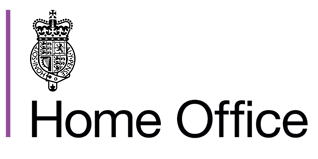PRESS RELEASE : Better protection from invasive data requests for victims of rape [October 2022]
The press release issued by the Home Office on 17 October 2022.
- New code of practice on data extraction published today
- Ends ‘digital strip search’ of victims’ electronic devices
- Part of government action to boost confidence in criminal justice system and improve the quality of rape investigations
A new code of practice for powers included in the Police, Crime, Sentencing and Courts (PCSC) Act was laid in Parliament today (Monday 17 October), which will see new obligations on police to protect the privacy of victims.
The new code will ensure that powers to request information from victims’ phones and devices are correctly used by the police and that all victims get the same high standards of protection.
It forms part of a programme of work to transform the way rape and sexual assault cases are investigated and prosecuted. The programme includes work such as Operation Soteria, a pioneering project working alongside academics to introduce a new operating model for the investigation of rape cases to improve prosecution rates and ensure a high standard in investigating rape and sexual assault across forces.
Minister for Safeguarding Mims Davies said:
It is vital victims are treated with utmost sensitivity and respect when reporting crimes, so that more victims feel able to come forward.
These new measures are part of our commitment to ensuring police investigate crimes against women and girls thoroughly, with a clear focus on the suspect, not the victim.
Bringing the PCSC Act powers and code into force represents a significant step forward in balancing the privacy rights of victims with effective investigations, to ensure more perpetrators are brought to justice.
The powers and the code fulfil the government’s ambition set out in the Rape Review Action Plan that victims should only be asked for their phones where necessary, proportionate and as part of a reasonable line of enquiry.
The powers will also mean that the police must tell victims why they want their devices and what information they are looking for. They will also have to make sure victims know that they can refuse the request without it resulting in their case being automatically dropped.
Earlier this year, the government conducted a 9-week public consultation to engage with experts across the sector on how the code of practice could best protect victims. The code was strengthened as a result, and the government has now also published its response to the consultation.
ACC Tim de Meyer, National Police Chiefs’ Council Lead for Disclosure said:
The NPCC welcomes the new powers within the PCSC Act.
For 2 years, we have been working with criminal justice partners, government and victims groups to improve this area of investigative practice.
As investigators we must ensure the suspect’s absolute right to a fair trial while protecting the privacy of victims and witnesses. The new code of practice will help us to achieve this.
The code of practice and extraction of information powers contribute to the delivery of the government’s End-to-End Rape Review, which seeks to achieve systemic and cultural change to improve the victim experience and to bring offenders to justice. This includes increasing the number of Independent Sexual Violence and Domestic Violence Advisers, rolling out pre-recorded cross-examination for victims of sexual and modern slavery offences in all Crown Courts in England and Wales, and working with forces to understand how they can be supported to develop the capabilities they need to examine rape victims’ devices within 24 hours.



